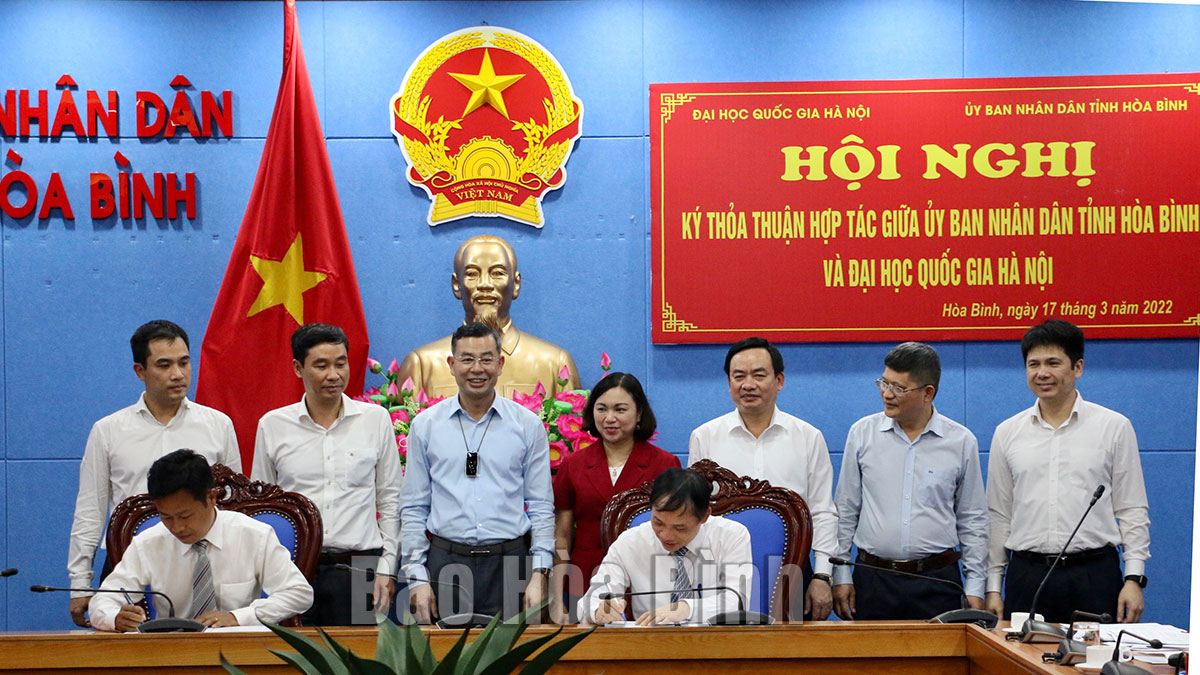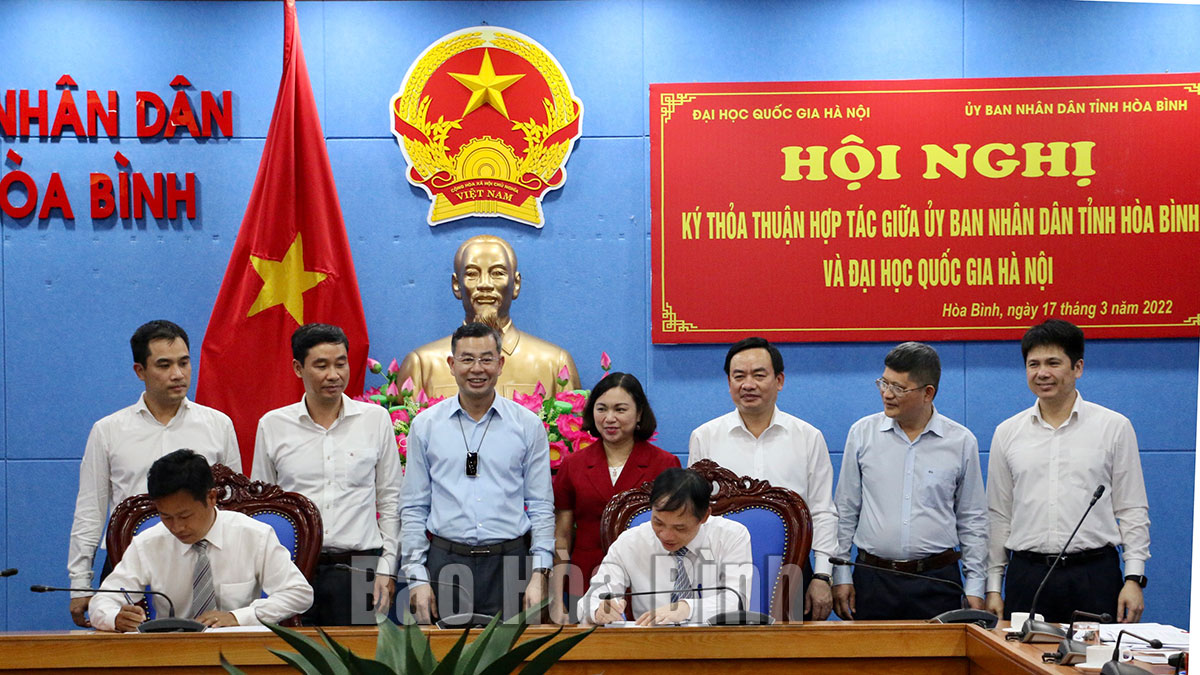
(HBO) – The Hoa Binh provincial People’s Committee and the Vietnam National University, Hanoi (VNU) on March 17 signed an agreement on training, scientific research, and technology transfer cooperation for the 2021 - 2025 period.
Secretary of the provincial Party Committee Ngo Van Tuan, member of the Party
Central Committee and head of the National Assembly deputies’ delegation of Hoa
Binh,and other delegates witness the agreement signing between the
provincial People’s Committee and the VNU.
The two sides identified three focuses of their
cooperation, namely human resources training and development, scientific
research and technology transfer, and socio-economic development policy
consulting.
Witnessing the signing, Secretary of the
provincial Party Committee Ngo Van Tuan stressed that Hoa Binh is applying
itself to making four strategic breakthroughs (planning, administrative reform,
infrastructure development, and human resources quality improvement) while
setting up targets and devising strong measures relevant to the four main
pillars of clean agriculture, high-value support industries, capitalisation of
its close proximity to Hanoi capital, and the abundant workforce. It is also
working to make use of local natural resources, beautiful landscapes, and the
culture deeply imbued with ethnic groups’ identities to develop tourism.
He expressed his hope the cooperation will
generate sustainable and long-term benefits for both sides, and that the VNU
will substantially assist Hoa Binh in the three important areas of human
resources training and development, science - technology, and policy
consulting.
VNU Director Prof. and Dr. Le Quan pledged to
provide high-level training courses to the province's order; create favourable
conditions for local cadres to engage in training and researches; coordinate to
transfer scientific - technological advances in terms of planning, tourism, and
environmental protection; and carry out other activities requested by the
provincial People’s Committee and match the VNU’s functions.
At the event, participants also discussed
cooperation orientations and activities for 2022 and 2023. Concluding the meeting, Bui Van Khanh, Vice
Secretary of the provincial Party Committee and Chairman of the provincial
People’s Committee, voiced his hope that this partnership will contribute to
socio-economic development of Hoa Binh./.
The Standing Board of the Hoa Binh provincial Party Committee has agreed in principle on a proposal by the Standing Board of the Party Committee of Hoa Binh city to gather feedback on the city’s 1:2000 zoning plan, which forms part of its broader urban development strategy.
Hoa Binh province has made notable progress in public administration reform and digital government development, with the satisfaction index among citizens and businesses reaching over 84%, according to recent government evaluations.
Thanks to great efforts by local authorities in recent times, the governance and public administration performance of Mai Chau district has been significantly improved.
In the afternoon of June 6, the Party Committee, the People's Council, the People's Committee and the Fatherland Front of Lac Son district solemnly held a meeting to celebrate the 139th anniversary of the district's founding (1886–2025) and the 79th anniversary of the establishment of the district's Party Committee (1946–2025). There was the attendance of Mr. Bui Van Thang, the Vice Chairman of the Provincial People's Council; Mr. Quach Tat Liem, the Vice Chairman of the Provincial People's Committee; Ms. Dang Bich Ngoc, the Deputy Head of the National Assembly Delegation of the province; as well as the former leaders of the province and district through various periods, who are the natives of the district.
Implementing the Politburo’s Resolution No. 57-NQ/TW on breakthroughs in science – technology, innovation, and digital transformation is a golden opportunity for the northern mountainous province of Hoa Binh to renew growth model, improve competitive edge and shorten digital gap.
Resolution 57-NQ/TW, issued by the Politburo on December 22, 2024, identifies sci-tech, innovation, and digital transformation as strategic breakthroughs to build a developed and prosperous nation. In Hoa Binh province, this spirit is not just a slogan, it’s being put into action through concrete initiatives that form a "new development triangle”: digital citizenship, digital economy, and digital administration.



